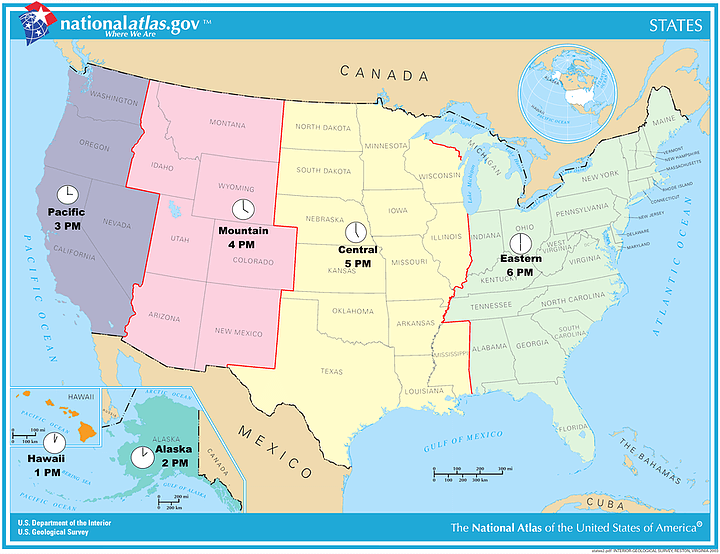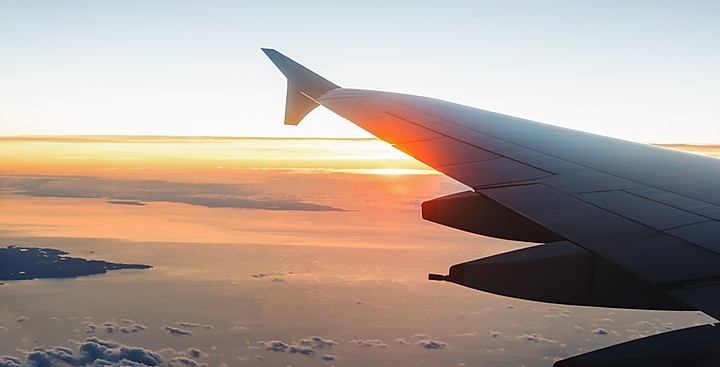On Sunday March 10th, 2019 Daylight Savings Time was observed across most of the United States. This is where most “spring forward”, setting their clocks 1 hour ahead. There are only two states in the U.S. that do not practice Daylight Savings Time – Arizona, and Hawaiʻi. We observe standard time all year round, so for example, if you are in California, Hawaiʻi is currently 3 hours behind you. On Sunday November 3rd, Daylight Savings Time will end, and Hawaiʻi will then be 2 hours behind California.
Check out the below map for all U.S. time zones.

Photo Credit: Reddit
No matter what time zone youʻre coming from, you may experience a phenomenon called jet lag. This is defined as “extreme tiredness and other physical effects felt by a person after a long flight across several time zones.” Rapid travel throws off our circadian rhythm — the biological clock that helps control when we wake and fall asleep.
When landing in a tropical paradise like Hawaiʻi, who has time to recover from jet lag? You want to jump right into the experience and soak up every moment you have in this beautiful state.
For this month’s Tips from Tats, weʻve compiled a list of tips to help prevent and recover from jet lag, so you can make the most of your visit to Hawaiʻi.

Before
-
Try to book flights that land in the morning or during daylight. This way you will get out and start exploring right away, adjusting to the new time zone.
-
Simulate your new schedule. Adjust mealtimes and bedtimes to help adjust to your new schedule when you land.
-
Take a hot bath before bed the night before your flight to relax muscles and help aid in a comfortable flight.
-
Drink a lot of water to stay hydrated.
During
-
Continue drinking plenty of water to stay hydrated.
-
Minimize caffeine and alcohol consumption. Both interfere with your sleep patterns.
-
Change the time on your watch. This will help your brain start shifting into your new time zone.
-
Fast. Harvard Medical School research states that not eating while on your flight could potentially help your body clock adjust.
-
Move around. Get up and stretch your legs while on your flight (after they have turned off the seatbelt sign, of course).
After
-
Immediately get on a schedule. Try to adjust your schedule according to the current time zone you are in, not the one you came from.
-
Shower. Nothing like a nice shower to refresh you and get you ready for the day.
-
Avoid napping during the day so that your body has a chance to adjust to the new time zone and schedule.
-
Exposure to Light: One of the most important environmental cues for resetting your sleep-wake cycle is light. To better sync your body clock to your new time zone, try exposing yourself to bright light. Easy to do here in sunny Hawaiʻi.
-
Moderate exercise can help you adjust, and if you head outdoors you get the double benefit of exposure to light as well.
-
Similar to when you are at home, minimize sleep distractions. Keep your room dark and stay away from electronic devices while falling asleep.
-
If you are still having trouble sleeping, try using a sleep aid like melatonin to help your body get some rest.
Happy Traveling!
